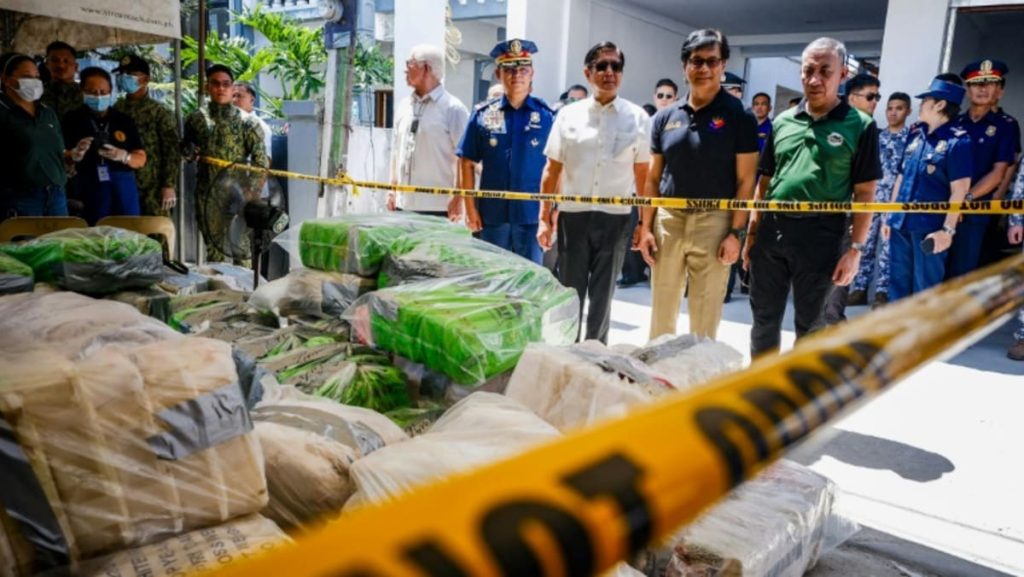The Philippines recently seized 1.8 tonnes of crystal methamphetamine, which President Ferdinand Marcos described as a record-breaking bust and the “right approach” to the country’s drug war. The illegal drugs, valued at over US$230 million, were found in a van in Batangas province, resulting in the arrest of the driver. Marcos inspected the drug haul and emphasized that it was the largest seizure of shabu, the local term for crystal meth, in the country. Despite the massive quantity, the operation was conducted without any casualties, injuries, or gunfights, highlighting the importance of a careful approach to drug enforcement.
While it remains unclear whether the drug seizure set a record in terms of value or quantity, authorities are working to trace the source of the drugs. Marcos indicated that the drugs were likely not manufactured locally, suggesting that a larger international drug network may be involved. Anti-drug operations in the Philippines have been controversial, with thousands of deaths occurring under former president Rodrigo Duterte’s administration, leading to allegations of human rights abuses. Despite ongoing concerns, the drug war has continued under Marcos, who has advocated for a greater focus on prevention and rehabilitation in tackling drug-related issues.
Since taking office in June 2022, Marcos has overseen more than 600 drug-related killings, according to data from the Dahas research project. While the numbers remain high, human rights advocates have pointed to the recent drug bust as evidence that drug enforcement can be carried out without resorting to violence if authorities follow due process. Carlos Conde, a senior researcher at Human Rights Watch, called on the Marcos administration to declare an end to the violent drug war and to retract Duterte’s orders for a harsh crackdown. Conde emphasized the need for Marcos to align his drug policy with his rhetoric on reform and to prioritize non-violent approaches to addressing drug issues in the Philippines.
The seizure of 1.8 tonnes of crystal methamphetamine represents a significant milestone in the Philippines’ efforts to combat the drug trade, with the bust valued at over US$230 million. By conducting the operation without any casualties or injuries, law enforcement officials demonstrated the effectiveness of a careful and measured approach to drug enforcement. Despite the challenges posed by international drug networks and the history of violence in anti-drug operations, the recent seizure offers hope that drug enforcement can be carried out responsibly and effectively while respecting human rights.
As calls for an end to the violent drug war continue to mount, President Marcos faces pressure to align his actions with his stated commitment to reform and prioritize prevention and rehabilitation in addressing drug-related issues. The drug bust serves as a beacon of hope for those advocating for a more humane and effective approach to drug policy in the Philippines. Moving forward, it will be crucial for the government to build on this momentum and work towards sustainable solutions that prioritize the well-being and safety of all Filipinos. By upholding due process and human rights principles, the country can chart a new course in its fight against drug trafficking and addiction, setting a positive example for future generations.













